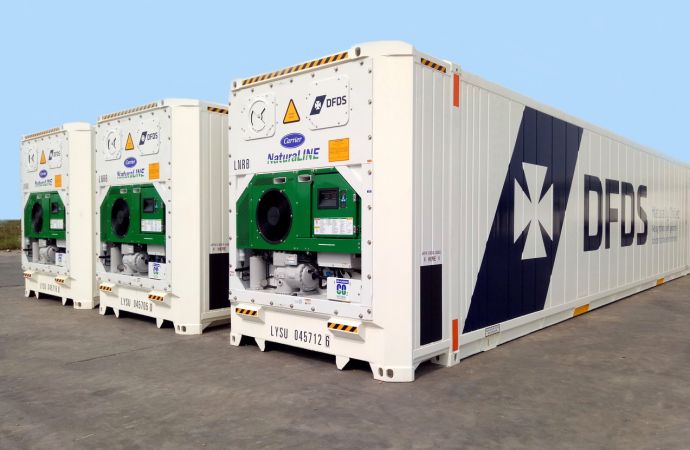Less than a year after its renewed commitment to using CO2 as a refrigerant in new vehicle mobile air conditioning (MAC) systems, Daimler has launched its first three prototypes reliant on the natural refrigerant, developed with a view to meeting the 2017 deadline. Volkswagen is also said to have prototypes under development and plans to have some series equipped with CO2 already in 2016. Update: In mid-2014, Daimler plans to order

As reported by German media source Frankfurter Rundschau, Daimler has made an important step towards developing a mobile air conditioning system using R744 for its vehicles. First prototypes for B-, C- and S-Class vehicles have been developed and testing in laboratory conditions has been initiated. “We were able to bring the prototypes into operation without problems,” said Stefan Geyer, head of interior development at Mercedes-Benz Cars.
In the coming months, the reliability of the equipment as well as final specifications of components will be examined. Already in mid-2014, the OEM plans to have the production of standardised CO2 MAC components.
Testing of CO2 MAC under different climatic conditions
Geyer confirmed that Daimler is working hard in collaboration with its suppliers to meet the deadline of converting the new fleet to CO2 by 2017, a deadline set by the EU Mobile Air Conditioning (MAC) Directive.
Extensive tests in vehicles and on test benches are currently in progress. Moreover, the prototypes are being tested in climatic wind tunnels, which according to Geyer can simulate conditions in different climatic zones and seasons. Performance of prototype systems can thus be determined independently from the local weather in Germany.
According to Daimler’s experience, CO2 in MAC is more efficient in Central European climatic conditions than the currently used refrigerant HFC134a or the new HFC1234yf. The interior of the car can cool down faster and the fuel consumption for cooling in the overall balance is also slightly lower. The previously installed air conditioning systems increase the car’s fuel consumption from half a litre to one liter per 100 kilometers.
Volkswagen preparing CO2 MAC prototypes, but 2017 not feasible for entire fleet of new vehicles
According to the German media source Frankfurter Rundschau, Volkswagen Group has also begun the work on new CO2 MAC systems and first prototypes are under development.
For Volkswagen CO2 is the refrigerant of the future, stated Thomas Steg, a representative of VW at a recent meeting. The OEM plans to equip some of its series with the new air conditioning system already in 2016. However, as stated by Steg, it will not be feasible for the OEM to convert the whole fleet of new vehicels to CO2 by 2017, and the deadline needs to be politically negotiated.
Group of OEMs working on modular CO2 system
According to the German association of the automotive industry (VDA), BMW, Ford, Opel and several other OEMs are participating in a working group to develop standardised CO2 MAC. “All manufacturers can make use of the standardised system,” said Daimler’s Geyer. Each OEM will be responsible for individual parts of the system.
The DIN specifications for standardising the components of CO2 MAC are expected to be published in March 2014 and experts will have two months to submit comments.
In the coming months, the reliability of the equipment as well as final specifications of components will be examined. Already in mid-2014, the OEM plans to have the production of standardised CO2 MAC components.
Testing of CO2 MAC under different climatic conditions
Geyer confirmed that Daimler is working hard in collaboration with its suppliers to meet the deadline of converting the new fleet to CO2 by 2017, a deadline set by the EU Mobile Air Conditioning (MAC) Directive.
Extensive tests in vehicles and on test benches are currently in progress. Moreover, the prototypes are being tested in climatic wind tunnels, which according to Geyer can simulate conditions in different climatic zones and seasons. Performance of prototype systems can thus be determined independently from the local weather in Germany.
According to Daimler’s experience, CO2 in MAC is more efficient in Central European climatic conditions than the currently used refrigerant HFC134a or the new HFC1234yf. The interior of the car can cool down faster and the fuel consumption for cooling in the overall balance is also slightly lower. The previously installed air conditioning systems increase the car’s fuel consumption from half a litre to one liter per 100 kilometers.
Volkswagen preparing CO2 MAC prototypes, but 2017 not feasible for entire fleet of new vehicles
According to the German media source Frankfurter Rundschau, Volkswagen Group has also begun the work on new CO2 MAC systems and first prototypes are under development.
For Volkswagen CO2 is the refrigerant of the future, stated Thomas Steg, a representative of VW at a recent meeting. The OEM plans to equip some of its series with the new air conditioning system already in 2016. However, as stated by Steg, it will not be feasible for the OEM to convert the whole fleet of new vehicels to CO2 by 2017, and the deadline needs to be politically negotiated.
Group of OEMs working on modular CO2 system
According to the German association of the automotive industry (VDA), BMW, Ford, Opel and several other OEMs are participating in a working group to develop standardised CO2 MAC. “All manufacturers can make use of the standardised system,” said Daimler’s Geyer. Each OEM will be responsible for individual parts of the system.
The DIN specifications for standardising the components of CO2 MAC are expected to be published in March 2014 and experts will have two months to submit comments.
MORE INFORMATION
Related stories


